By Mackubin Owens, retired Marine officer; taught at the US Naval War College for 35 years
In May of 1962, General Douglas MacArthur delivered a speech to the Corps of the U.S. Military Academy (USMA) at West Point, in which he memorably evoked the institution’s traditional motto of “Duty, Honor, Country.”
“Those three hallowed words,” MacArthur told the cadets, “reverently dictate what you ought to be, what you can be, what you will be.”
They are not a slogan or a flamboyant phrase, he continued, “[t]hey build your basic character; they mold you for your future roles as custodians of the nation’s defense. … They teach you … to be an officer and a gentleman.”
The USMA recently removed “Duty, Honor, and Country” from its motto, replacing it with something called “Army Values.”
The step has caused consternation among many graduates of the USMA, who see it as one more indication of a creeping “wokeism” affecting the military at large.
But others have argued that the change is much ado about nothing. After all, a mission is more than a motto. They also observe that “Army Values” include duty and honor as well as loyalty, respect, selfless service, integrity, and personal courage. They also point out that the mission of the USMA has been changed multiple times over the years.
The real problem here is the use of the term “values.”
One origin of the word is in modern economics, which recognizes that the “value” of a good is not derived from the labor that went into producing it but from the subjective valuation of those making an exchange. In other words, exchange occurs because individuals value goods differently. Thus, some are willing to pay more for a certain good than others. Exchange occurs when the buyer and seller agree on the terms.
Unfortunately, this term has taken hold in philosophy, sociology, and politics. Any discussion of values suggests something that can be different for some than for others.
Who can say that some values are better than others? Who is to say that the values of a Nazi are worse than those of an advocate of freedom? You have your values. I have mine. Subjective valuation places us on the road to nihilism.
The Military Academy would be on much firmer ground if it spoke of “virtues” rather than “values.” The English word “virtue” come from “virtus,” the Latin translation of the Greek, “arête,” which means “excellence.”
As Aristotle taught, the excellence of a thing is associated with its very nature. Virtues are objective, not subjective.
The problem with “Army Values” is that since they are subjective and subject to change. Duty and honor may be valued today but perhaps not tomorrow.
Values, unlike virtues, can be “updated” based on changing circumstances. Given recent trends, it is likely that we shall soon see diversity, equity, and inclusion listed as Army values.
Historically, the U.S. military has adhered to a military ethos that underpins military effectiveness. This ethos, which has served the republic well, is based on trust among soldiers, between superiors and subordinates, and at the societal level between soldiers on the one hand and citizens on the other.
This mutual trust and the acceptance of a distinct military ethos is necessary if the military is to carry out what Samuel Huntington called in The Soldier and the State, his classic study of U.S. civil-military relations, its functional imperative, the ability of the military to respond to external threats.
The military must be capable of either deterring war or winning one if it comes. That is the whole idea of military effectiveness.
It has long been an article of faith that to execute its functional imperative on behalf of the nation, the military of necessity must maintain an ethos distinct from that of liberal society.
Indeed, a liberal democracy faces a paradox when it comes to the relationship between the military and society at large: the former cannot govern itself in accordance with the democratic principles of that society.
If the military fails, the society it protects may not survive. And long experience has taught us that certain kinds of behavior are destructive of good order, discipline, and morale, without which a military organization will certainly fail.
The goal of military policy must be victory on the battlefield. This is a purpose that cannot be in competition with any other, including the provision of entitlements, “equal opportunity,” or diversity. Indeed, the battlefield mocks “diversity.”
Unfortunately, many of those in positions of responsibility—including far too many senior members of the military itself—seem to have forgotten this imperative.
This attitude is the result of another set of social forces that Huntington identified.
These he called the societal imperative, “the social forces, ideologies, and institutions dominant within the society.”
He identified two components of the societal imperative: 1) the U.S. constitutional structure, the legal institutional framework that guides American politics and military affairs; and 2) the dominant ideology shaping political affairs, which Huntington identified as liberalism, “the gravest domestic threat to American military security,” due to its anti-military character.
The problem for Huntington was that in the long run, the social imperative would prevail over the functional imperative, undermining the military virtues necessary to ensure military effectiveness.
Huntington argued that America’s anti-military liberal ideology tended to produce two outcomes.
When the external threat was low, liberal ideology sought “extirpation,” the virtual elimination of military forces.
When the external threat was high, liberal ideology pursued a policy of “transmutation,” refashioning the military along liberal lines by stripping it of its “particularly military characteristics.”
Today, we have transmutation on steroids.
The latest manifestation of transmutation is the military’s worship of “diversity.” Indeed, diversity now trumps military effectiveness as a goal of military policy.
But attempts by the military to address an alleged lack of “diversity” in the ranks can make things worse by pushing “identity politics.”
Identity politics, by suggesting that justice is a function of attributes such as skin color rather than one’s identity as an individual, tends to divide rather than unify people.
Identity politics undermines military effectiveness, which depends on cohesion born of trust among those who operate together.
In and of itself, the change in the USMA’s mission statement is not that serious. The list of the Army values embedded in the mission statement certainly underpins an ethos and commitment to military effectiveness.
The danger lies in the threat of transmutation, as both civilian and uniformed members of the military choose to dilute that ethos.
Comment on article from the comment section:
“Dr. Owens is right. The change of the USMA is a small but significant change the reflects the creeping politicization of the US military. Just as the Academy has made the Democrat DEI agenda an official academic minor, the mission change is effort inculcate Democrat Party ideology into USMA and the Army in general.
What is the old mission statement and the new one? The old one included the Academy motto Duty, Honor, Country while new one refers to the Army Values (which currently are: Loyalty, Duty, Respect, Selfless Service, Honor, Integrity, and Personal Courage).
Sounds nice, but what is missing? Why country of course? The left has routinely disparaged love of country jingoism and xenophobia. They now denounce the signers of the Declaration of Independence as “Christian Nationalists.”
As Dr Owens suggests another problem with this is that “Army Values” are in continuous flux and the real Army values enforced by the Army leadership today is Diversity, Equity, Inclusion. DEI is an ideological trope of the Democrat Party.
DEI commissars at all levels of military enforce compliance with Democrat ideology. It is used to paint their political opponents as White Supremacists and NAZIs.
DEI holds that any disparity among arbitrarily defined groups is only the result of invidious discrimination. Merit, motivation, experience, culture have nothing to do with disparate outcomes.
DEI teaches the 1619 myth. It embraces the idea that the US has always been and remains today a thoroughly racist nation, founded on White Supremacy and Christian Nationalism.
It pretends there are no biological differences between men and women, that men can get pregnant and women can have penises.
DEI is an ideology of hate intended to divide Americans.
The Army I served from the sixties to nineties tried valiantly to remedy some of the errors of our past. It strove to end racial discrimination, and recognize merit without regard to race or sex.
It endeavored to build effective teams, while recognizing individual skills and capabilities. We were not perfect, but our efforts and aspirations were more in keeping with with the founding principles of the nation than those of our politicized leaders today.
To those who claim these are exaggerations, think about how the NCAA insists “fairness” and inclusion mandates that biological males be permitted to engage in women’s sports. Or that professional medical and bar associations proclaim that medical board and bar exams must be abolished in the name of equity. Or, think about our record of military failure in the past two decades.”

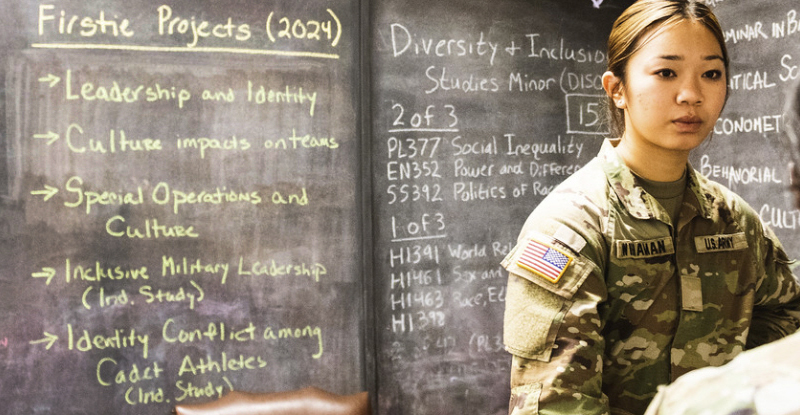
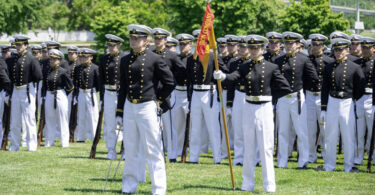
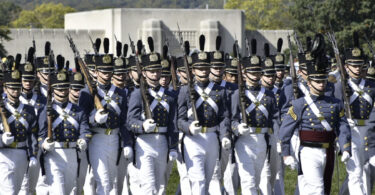
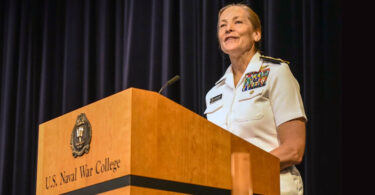
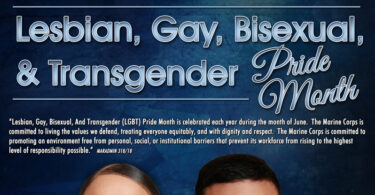

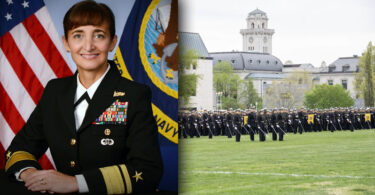
Leave a Comment